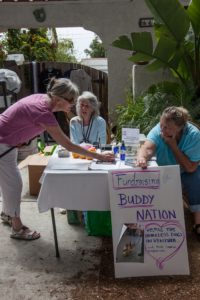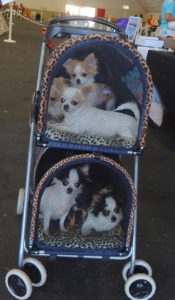
 • Walden Surfboards is raffling off a custom 9’0 surfboard with the proceeds going to the Ventura Police Departments K-9 unit. The K-9 unit is mostly self-funded and it is very expensive to train and outfit the K-9 dogs. All of the officers reach into their own pockets to pay for some of the K-9 units cost because they love these dogs and they know how vital the dogs are to their own safety and the safety of our community. They are selling raffle tickets, the winning ticket will be chosen at the Bark Out Loud K-9 fundraiser, Sept. 9th.
• Walden Surfboards is raffling off a custom 9’0 surfboard with the proceeds going to the Ventura Police Departments K-9 unit. The K-9 unit is mostly self-funded and it is very expensive to train and outfit the K-9 dogs. All of the officers reach into their own pockets to pay for some of the K-9 units cost because they love these dogs and they know how vital the dogs are to their own safety and the safety of our community. They are selling raffle tickets, the winning ticket will be chosen at the Bark Out Loud K-9 fundraiser, Sept. 9th.
Raffle tickets: 1 ticket for 10.00, 3 tickets for 25.00 or 15 tickets for 100.00 Available at Walden Surfboards, Cash only. Please consider buying a raffle ticket and please help me spread the word.
Walden Surfboards
853 E. Front Street
• A big thank you Professor Scamp for including LostCatVentura.com and LostdogVentura.com in the Ventura Breeze. Your help promoting these resources is very much appreciated!
Cheers Debbie

• I sure hope that this isn’t applicable to dogs who have been raised with treats (maybe my home companions won’t read this). Like I like praise but no treats?
In an experiment designed to explain the relationship between humans and dogs — whether it’s defined by a true bond or a love of food — researchers found most dogs anticipate the praise of their owner as much or more than a food reward.
“One theory about dogs is that they are primarily Pavlovian machines: they just want food and their owners are simply the means to get it,” Gregory Berns, a neuroscientist at Emory University, said in a news release. “Another, more current, view of their behavior is that dogs value human contact in and of itself.”
In the early 1900s, psychologist Ivan Pavlov trained dogs to associated food with a stimulus, like a bell. Eventually, Pavlov was able to make dogs salivate using only the stimulus.
But the latest research, detailed in the journal Social Cognitive and Affective Neuroscience (which I read all the time), suggests dogs aren’t so single-minded.
Berns and his colleagues began their experiment by training dogs to associate three objects with three different rewards: a pink toy truck with food; a blue toy knight with verbal praise; and a hairbrush with the absence of a reward.
Over the course of 32 trials, the 13 participant dogs were presented with the three objects. The dogs’ neural responses to each stimulus were measured using an fMRI machine.
All dogs preferred a reward to none at all. Four dogs showed a particularly strong response to the blue toy knight, while nine dogs responded equally to the two types of reward. Only two dogs were consistently more excited about the pink toy truck and the food reward(my kind of dogs).
In a second experiment, researchers allowed dogs to follow one of two simple maze paths: one leading to their owner, the other to a bowl of food. Owners sat with their backs turned and praised their dog when he or she arrived.
“We found that the caudate (do they mean pawdate?)response of each dog in the first experiment correlated with their choices in the second experiment,” Berns said. “Dogs are individuals and their neurological profiles fit the behavioral choices they make.”
“Most of the dogs alternated between food and owner, but the dogs with the strongest neural response to praise chose to go to their owners 80 to 90 % of the time,” Berns continued. “It shows the importance of social reward and praise to dogs. It may be analogous to how we humans feel when someone praises us.”
